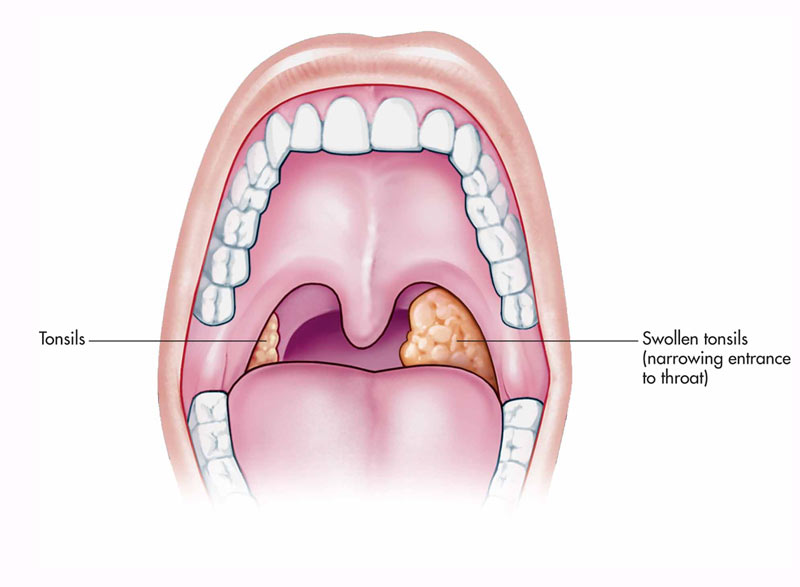
Tonsilitis is an infection of the tonsils. These small masses in the back of the mouth, which are part of the lymphatic system, are designed to protect the body against infections. The tonsils produce antibodies to combat bacteria and other microbes, but they can become overrun by bacteria, resulting in symptoms of tonsillitis. In some cases, the disease can be curable with antibiotics. However, if the disease is persistent or worsening, it may be a sign of more serious problems.
Tonsillitis is a common infection, which usually occurs from a viral infection. The tonsils are glandular tissues found in the back of the mouth and are the first line of defense against bacteria and viruses that invade the body. The tonsils typically reach their peak size in childhood, between four and seven years of age, and play a vital role in the immune system. If they become infected, they produce defensive immune cells known as macrophages, which engulf infecting organisms and release digestive enzymes to kill them. However, when the condition becomes more severe, it can cause a sore throat, swollen neck glands, and pain.
Infection of the tonsils is usually caused by a virus, but it can also occur from a bacterial infection. A bacterial infection is the most common cause of tonsillitis, which is also associated with fever and a runny nose. In such a case, antibiotics are useless, but medication and rest will alleviate your symptoms. Alternatively, your doctor can prescribe you medication that will reduce your pain and inflammation.
Tonsilitis can cause a plethora of problems. It’s important to see a doctor as soon as you notice the first symptoms of an infection. The doctor will examine you and make a diagnosis. A good treatment plan will depend on whether the infection is bacterial or viral. You can take over-the-counter pain relievers or ibuprofen to reduce the discomfort. If you have any of these symptoms, you should try drinking plenty of warm liquids to relieve the pain. Moreover, you should wash your hands after touching your nose and sharing food.
Despite the fact that tonsillitis is caused by a bacterial infection, it is usually treatable with antibiotics. The infection can also lead to tonsil stones. The stones are made up of dead cells, saliva, and food particles and can be difficult to remove. In some cases, the stones may fall out on their own, but some need to undergo surgery to be removed. Genetics and poor immune systems are other reasons for recurring tonsillitis.

A doctor will perform a tonsillectomy to remove the swollen tonsils. This procedure is performed when it becomes impossible to tolerate the pain or swelling of the tonsils. A swollen or painful tonsil can interfere with breathing, eating, and even swallowing. The removal of the tonsils is a surgical procedure called a tonsillectomy. It is very painful and can lead to a fever. While the treatment of tonsillitis depends on the cause of the illness, this procedure is highly effective and can cure it completely.
Usually, a doctor will recommend antibiotics for tonsillitis. The treatment for this disease depends on the cause of the infection. In most cases, the antibiotics are given as one-time-injection or as pills. The pain will subside within 2 to 3 days. Although a tonsillectomy is a painful and uncomfortable procedure, it can improve your chances of avoiding other complications and preventing another infection. It is necessary to follow instructions carefully and receive appropriate medical care.
Acute tonsillitis is the most common type of tonsillitis. It is characterized by fever, sore throat, and a yellow or white coating. Symptoms may include sore throat and fever, swollen neck glands, and difficulty swallowing. If a person has a persistent sore throat, the health site prende.org.mx may recommend antibiotics. A swollen tonsil should be treated as soon as possible.
In addition to fever and sore throat, tonsillitis is accompanied by other symptoms, including fever and bad breath. Swollen tonsils can also make swallowing painful or impossible. Patients may even experience mouth breathing and snoring if their tonsils are inflamed. When these symptoms persist, the infection is likely to be chronic. Affected people may have persistent sore throats, soreness of the neck and cervical lymph nodes, and may develop pneumonia.